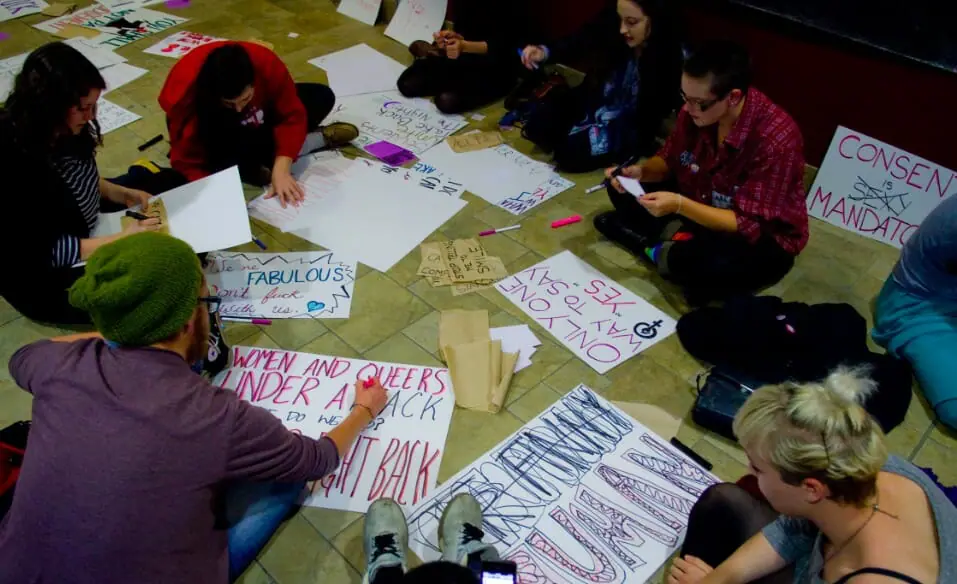
“Hey hey. Ho ho. The patriarchy has got to go,” rang through the streets of Halifax as over a hundred participants marched to South House for Take Back the Campus.
Take Back the Night is a march held around the world to challenge rape culture. This year, the DSU organized ‘Take Back the Campus,’ putting a twist on the event in order to deal specifically with campus issues of rape and sexual assault.
“We are tired of being told to hold out keys like weapons in the dark,” said Rebecca Ferrara, founder of Halifax Hollaback and one of the speakers at the rally. “We are beyond ready for things to change and you are here because you are ready to take your campuses back.”
Discussions of rape and sexual assault have been circulating Canadian campuses across the coast for close to a month now. The unearthing of frosh chants celebrating rape at both Saint Mary’s University and the University of British Columbia has recently stirred up tremendous emotion among students and citizens alike.
The chants emphasize the pursuit of underage girls with “no consent.” It is just one example of the rape culture among university campuses and cities in recent years.
“We live in a culture where there is a very narrow definition of rape,” says Emma Kenny, a King’s student. “There are many, many different ways to say no, but only one way to say yes.”
‘Rape culture’ refers to the normalization and acceptance of rape as a part of society—a society where girls are told and taught to be safe and be smart, and where perpetrators continue to hide in the dark corners of the streets.
El Jones, activist speaker and poet laureate of Halifax, talks about this backward thinking about assault and blame in her account of a friend’s rape. Her words brought tears to the eyes of Elise Graham, MC of the rally, along with the ever-growing crowd of participants. Alongside her stood speakers Laura Burke, Rebecca Ferrara, Randy Henderson and Jean Ketterling.
“Power, privilege, commodification, and ownership are all so deeply engrained into our society. These things manifest themselves in how we view others and their bodies,” says Katerina Stein, one of the event organizers. “Victim blaming is a result of the patriarchy, of the unhealthy expression of masculinity that this culture supports.”
Stein noticed the importance of ‘taking back the campus’ when she started talking to friends about experiences that portray rape culture. “Too often did these stories include perpetrators who these people were friends with or in relationships with.”
“And they all held another common theme. The storytellers had always felt like it was at least partially their fault.”
“There are no ‘blurred lines.’ Do not ‘domesticate me,” read one poster at the event, playing off of the lyrics in Robin Thicke’s song ‘Blurred Lines.’
According to statistics from the World Health Organization, one in four women will be sexually assaulted in her lifetime. While Canadian universities don’t publish rape statistics, university age women are at the highest risk of sexual assault and the chances are even higher for those within minority groups.
Event organizers set up two police liaisons, two community safety officers and three peer support people at the march, as well as a bus to drive participants home afterwards, near 7:30 p.m., just as it was getting dark.

Recent Comments